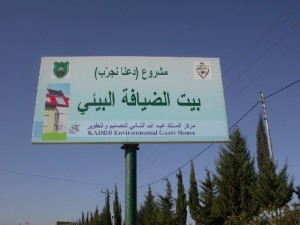 Plant pathologist Norman Borlaug, 95, died this Saturday, raising questions about the legacy of industrial food in the Third World. In 1970, Borlaug received a Nobel Peace Prize for averting famine through bringing fertilizers, pesticides and new plant strains to countries like India, Mexico and Pakistan. But environmentalists argue that his plant engineering only delayed catastrophe at great ecological costs.
Plant pathologist Norman Borlaug, 95, died this Saturday, raising questions about the legacy of industrial food in the Third World. In 1970, Borlaug received a Nobel Peace Prize for averting famine through bringing fertilizers, pesticides and new plant strains to countries like India, Mexico and Pakistan. But environmentalists argue that his plant engineering only delayed catastrophe at great ecological costs.
According to the Washington Post, Borlaug grew up in Iowa and was touched by the lines of people in bread lines during the Great Depression. He wanted to solve the issue of hunger. After getting his Ph.D in plant pathology in 1942, he worked on a team requested by the Mexican government to increase wheat production. First, he grew wheat in two seasons rather than one. Then, Borlaug developed a short-stalked “dwarf” wheat because fertilizer had made the old variety so tall the stalk fell over.
With Mexico on his resume, Borlaug went to develop dwarf rice species for Southeast Asia. By the end of his career, according to his foundation, the World Food Prize, he had programs in Latin America and Southeast Asia, along with a fat portfolio in the Middle East: Beginning in the early 1960’s, his approach to wheat breeding was introduced in Egypt, Tunisia, Syria, Iran, Libya, Jordan, Lebanon, Turkey, Iraq, Afghanistan, Algeria and Saudi Arabia. By the mid-1980s, he was pushing for a Green Revolution in Africa, too.
But increasing food through chemical inputs has its detractors. The Post reports that Borlaug faced off repeatedly against environmentalists from the 1970s on the issue.
“They claim that the consumer is being poisoned out of existence by the current high-yielding systems of agricultural production and recommend we revert back to lower-yielding, so-called sustainable technologies,” he said in a speech in New Orleans in 1993.
At the heart of the debate is the issue that Borlaug’s Green Revolution helped a hungry world feed itself and have more kids, rather than cutting down birth rates and stabilizing population growth, writes the New York Times:
In a characteristic complaint, Vandana Shiva, an Indian critic, wrote in 1991 that “in perceiving nature’s limits as constraints on productivity that had to be removed, American experts spread ecologically destructive and unsustainable practices worldwide.”
Dr. Borlaug declared that such arguments often came from “elitists” who were rich enough not to worry about where their next meal was coming from. But over time, he acknowledged the validity of some environmental concerns, and embraced more judicious use of fertilizers and pesticides. He was frustrated throughout his life that governments did not do more to tackle what he called “the population monster” by lowering birth rates.
Borlaug’s innovations coupled with better health care made a Middle Eastern population boom possible. But now, as organic farmers in Jordan, Lebanon, Israel and the West Bank find out, it is difficult or impossible to go back in time and raise food without the fertilizers, pesticides and engineered crops that were the hallmark of the Green Revolution. The question is, as Bill McKibben would put it, what are the limits of technology to improve our lives? Borlaug walked that fine line, and the answer has not yet emerged.
:: Photo from WashingtonPost.com




This whole story brings up the tension between public health for the larger population and the reality that individuals can become ill from exposures to pesticides and herbicides. There is potentially a balance that we all can strike by using less toxic pest control approaches as we have learned a lot about alternative ways to deal with pests and weeds since this original work.
Thelonecabbage said it all. People live longer and healthier lived. Science will discover better ways in time. Organic farming is turning back the clock to famine and will not feed the planet!
This industrial approach to agriculture is completely unsustainable. Pesticides poison wildlife, soil and humans and artificial fertilisers are manufactured from fossil fuels. I wonder what Borlaug’s vision was for growing food when oil supplies become perilously scarce and the price of fertiliser skyrockets (as it has been doing for the last few years)?
Oragnic farming isn’t ‘turning back the clock’. It is a evolving 60+ year old system utilising local resources and moidern practises, typically boosting yields in comparison to ‘traditional’ farming.
Saying that his contributions are debatable is like debating the moon landings. People are living longer and healthier lives now than before, famine was averted, and his basic methodology continues to increase food yields FASTER than population growth.
His technique focuses on 3 major issues:
1) artificial nitrogen fixation
2) herbacides/pesticides
3) breeding & GMO to produce more efficient plants
#3 is as old as the hills, although modern techniques are added. Almost none of the food we eat comes “from nature”; virtually all human staples have co-evoloved with humans either accidentally or through intentional human cross breeding & selection.
New advances as the result of #3 as well as improved robotics and tilling techniques have dramatically reduced the amount of #2, which we can all be thankful for. Farmers are under strong financial incentive to reduce the amount of chemicals needed to grow a batch of crops.
#1, is entirely sustainable. Nitrogen can be extracted directly from the air we breath. However at the current time is more economical to derive it from natural gas deposits (it’s not fair to call it fossil fuel anymore). When that becomes rarefied some clever little monkey will discover a way to use atmospheric nitrogen.
Increasing crop yields means less land for agriculture, and more land for forests, wild life, and “nature”. Borlouge was a great man, and I loath the onrush of cowards who will use his imposed silence as an opportunity to besmirch his legacy.